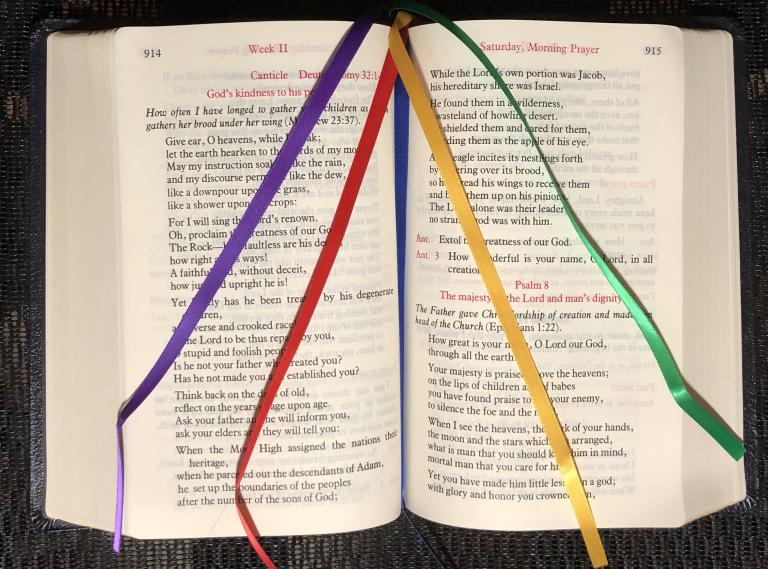

This is the other side of the previous point. The Divine Office teaches us humility, obedience, fidelity, and patience.And while it is hard to keep praying during dry seasons or times of emotional turmoil, doing so is a powerful way to deepen your faith. In that sense it is like marriage: a commitment of love, understanding that true love runs deeper than the emotions that ebb and flow from day to day or season to season. It is meant to be offered to God on a regular basis, no matter what kind of mood you’re in or what’s going on in your mind. The Divine Office helps us to pray at a level deeper than our feelings or experience. The liturgy is a daily commitment, not a “when you feel like it” commitment.It’s not magic: we still need to respond to God’s call to become holy.

The wisdom abounding in the Office shows us the path God calls us to follow. We need guidance to be the people we are meant to be. Our faith is clear: we are created in God’s image and likeness, but we often behave in ways that fail to live up to who God calls us to be. It also guides us to become who God wants us to be. The liturgy does more than just describe who God is, and who we are. The Divine Office forms our identity as members of the Body of Christ.And throughout the liturgy, we encounter insight into God’s personality and character - along with similar insights into what it means to be human in relationship with God, whether as individuals or as a community. But it’s still prayer - because prayer is more than just us talking to God, it’s God speaking to us. What’s interesting about the liturgy is that not all parts of it are addressed to God - some of it (for example, the canticles of Zechariah and Mary) is language about God. The Divine Office teaches us who God is, who the Church is, and who we are.But the liturgy also contains many other prayers that convey a range of feelings and concerns - it is a rich and nuanced vocabulary for prayer, that will deepen your ability to communicate with God throughout the day. The Psalms, canticles, and other passages from scripture form the bulk of the Daily Office in many ways, it is the Bible at prayer. But in the Liturgy of the Hours we have access to wisdom that stretches back to before the time of Jesus. The Divine Office provides us with a language for prayer. Sometimes it’s hard to find the words for prayer.If you don’t yet pray it, or need encouragement to begin or (like me) to strengthen your commitment to regular prayer, then I hope the following reasons will be a help for you. If you pray the Divine Office, perhaps this will be inspiration to carry on. So I thought I would share them with you. Just off the top of my head, I came up with four reasons, and as I reflected on it, I thought of three more. He asked me why I find the Divine Office worth praying. Recently I met with one of the monks who guides our Lay Cistercian community, and we talked about the liturgy. I wish I could say that I am now a model practitioner of daily prayer, but the truth is, I still struggle with it. In the book, I go on to talk about how forming a friendship with a devout Muslim, who prays five times every day, inspired me to take the Divine Office more seriously. I muddled along, praying from time to time and justified to myself all the days that I didn’t manage to pray. When I first became a Lay Cistercian, I struggled with the liturgy… My life was too busy, too unstructured, too freeform, and too spontaneous for me to be bothered by something like daily prayers. In chapter 7, I make the following confession: If you’ve read Befriending Silence, then you know that I have a tempestuous relationship with daily prayer. Praying the Divine Office is central to monastic life, but even those of us who aren’t monks may find that this type of prayer is an essential part of our spiritual practice.īut it’s a huge commitment and many people might find it daunting to pray even part of the Divine Office on a regular basis.


 0 kommentar(er)
0 kommentar(er)
